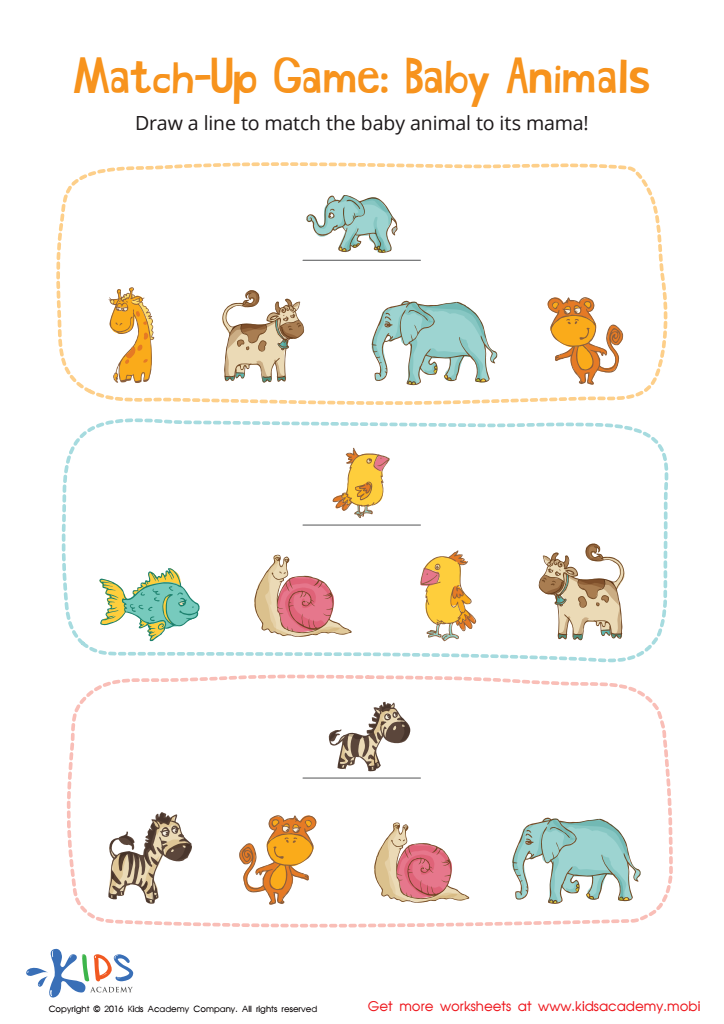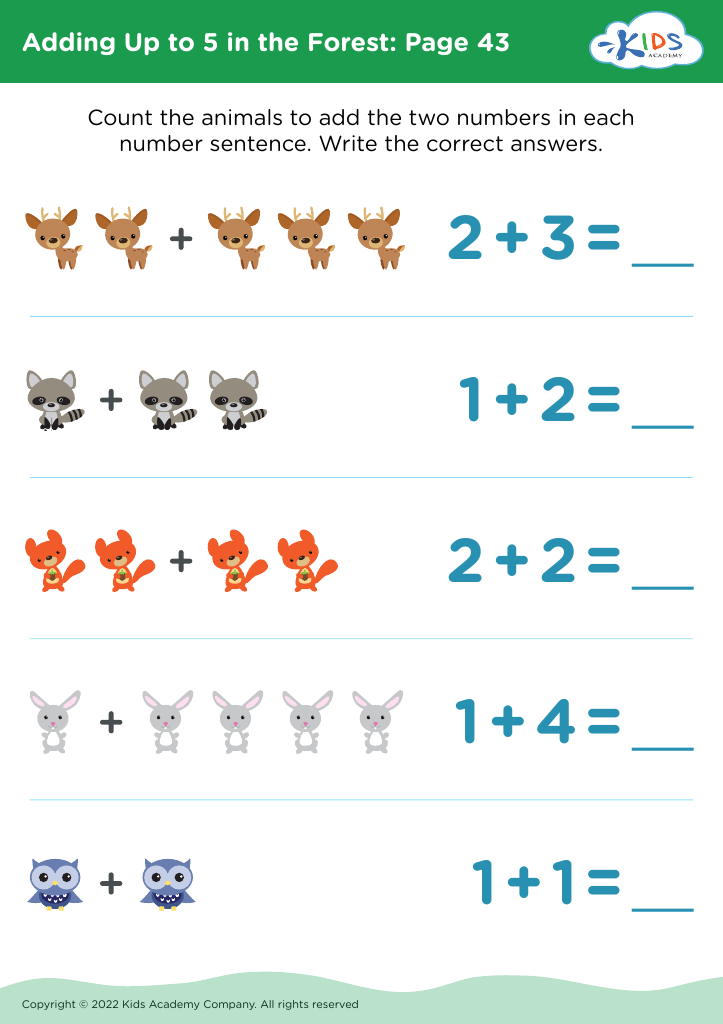Comprehension skills Math Worksheets for Ages 5-7
3 filtered results
-
From - To
Enhance your child's math learning experience with our engaging Comprehension Skills Math Worksheets tailored for ages 5-7. Designed to develop critical thinking and problem-solving abilities, these worksheets help young learners master foundational math concepts while improving their comprehension skills. Each printable activity features vibrant illustrations and relatable scenarios that make learning enjoyable and relevant. Whether practicing addition, subtraction, or word problems, our worksheets aim to build mathematical confidence in your child. Perfect for home or classroom use, these resources support early education, fostering a love for math and encouraging independent thinking. Explore our collection today and watch your child's skills flourish!


Baby Animals Match-Up Worksheet
Comprehension skills in math for children aged 5-7 are essential for their overall academic development and everyday problem-solving abilities. At this developmental stage, children are learning not only to perform basic calculations but also to understand and interpret mathematical concepts and language.
Firstly, strong comprehension skills enable children to grasp fundamental math ideas, such as addition, subtraction, and patterns. This understanding helps them progress to more complex topics as they grow older. When children comprehend what they read or hear about math tasks, they can better approach problem-solving with confidence.
Secondly, comprehension skills foster critical thinking. By learning to decode math problems, children can analyze situations and make connections between different concepts. This kind of thinking is crucial both in math and other subjects, encouraging a well-rounded education.
Lastly, strong math comprehension encourages a positive attitude towards math. When children can understand and articulate their thinking, they are more likely to engage and enjoy their learning experiences. Over time, this foundational knowledge supports their academic success and develops a lifelong appreciation for mathematics. Thus, parents and teachers play a vital role in nurturing these essential skills to lay the groundwork for future learning and development.
 Assign to My Students
Assign to My Students























